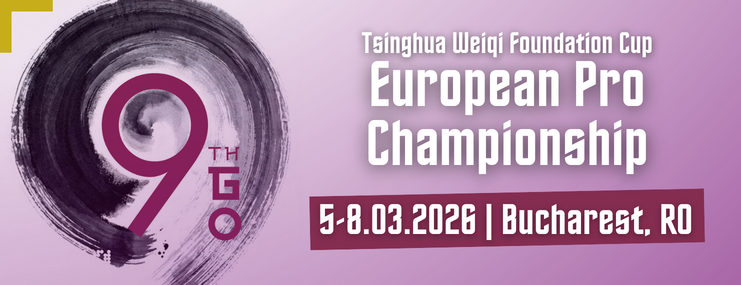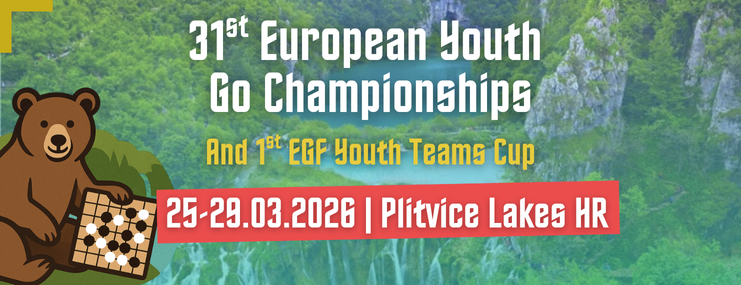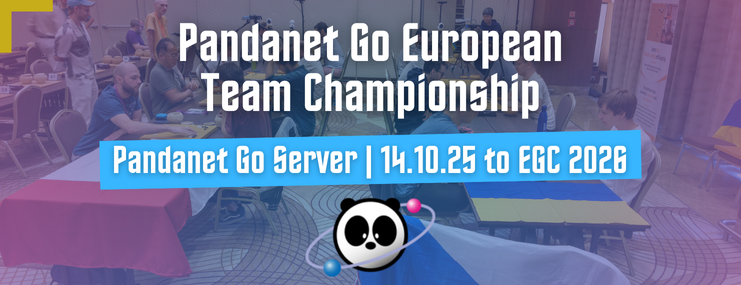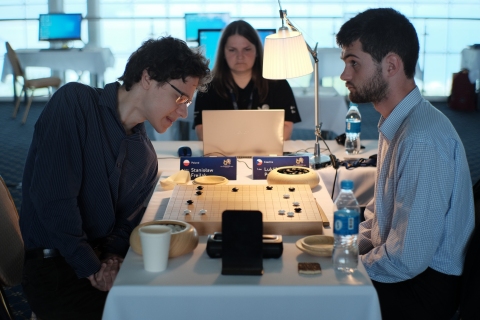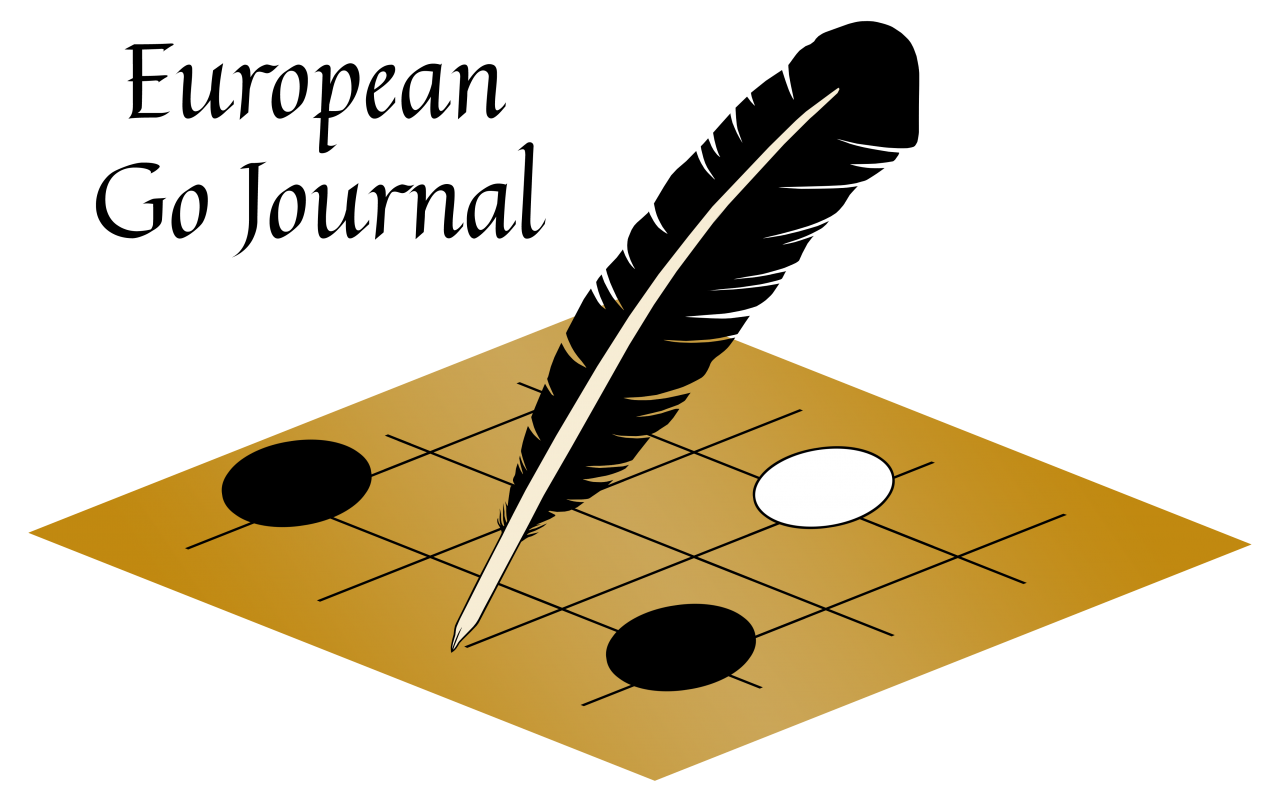
This sample article is taken from the June edition of the European Go Journal.
You’ll find plenty more articles like this one in each issue of the Journal; see the announcement of the June edition to read about what’s included this month. A particular highlight is a review of the epic game between Stanisław Frejlak 7d and Ma Tianfang 7d at this year’s World Amateur Go Competition – a historic victory for Europe.
Subscribe on Patreon before the end of June to receive this month’s edition automatically: https://www.patreon.com/europeangojournal.
If you would like to purchase any of the past editions, just send a message to [email protected].
The 41st WAGC: Interviews With Top European Participants
The World Amateur Go Championship (WAGC) is an annual competition that has been held by the International Go Federation (IGF) since 1979 in which each member country of the IGF nominates a single player to participate.From June 3rd to June 9th the WAGC took place in an EGF member country for the first time in its history, in the city of Vladivostok, Russia. Previously, the only countries to host this event had been Japan, China, Korea and a one-time exception of Thailand in 2015.
The 41st edition of the WAGC had been scheduled for 2020, but due to the COVID-19 virus it was postponed for 2021. Traveling conditions didn't improve much between the two dates, so the organizers of the event had to adapt. Those participants unable to attend in person were able to play online with anti-cheating measures applied.
Despite challenges related to the global pandemic, the organizers - the Russian Go Federation and the IGF - did a fantastic job. Fifty-seven players represented their countries from every continent on the globe except Antarctica. Twenty participants, mostly from Europe, were present in Vladivostok.

China's Ma Tianfang 7d won the 41st WAGC, followed by the 2014 and 2018 champion Chan I-Tien 7d from Chinese Taipei as runner-up. South Korea's Kim Dabeen 7d took third place. Lukáš Podpěra 7d and Stanisław Frejlak 7d had the best results of all the European players with fourth and fifth place finishes respectively. Both of their performances were exceptional.
Lukáš won all his games but one: he suffered his only loss to the eventual champion. Stanisław defeated Japan's representative, Morikawa Shunji 7d, and then went on to mark the only defeat in Ma Tianfang's otherwise clean sheet. That victory marked a historic achievement in European go: it was the second time that a European player beat the Chinese representative at the WAGC. The only player to have done so before was Ronald Schlemper from the Netherlands in 1991. Unfortunately, Stanisław was unable to convert this triumph into a better tournament result and lost his games in the last two rounds.
I interviewed Lukáš Podpěra and Stanisław Frejlak about their experiences of the event. In the chapter that follows you will find a review of the game between Stanisław and Ma Tianfang.
Interview with Lukáš Podpěra 7d
Artem: Congratulations on a great result! How did the tournament go for you?Lukáš: Thank you! It didn't go quite as smoothly as the results may suggest. In the first round I was in danger of losing against Chahine Koleejan 5d from New Zealand. As usual, I played my patient style - waiting for the opponent's mistake. I kept waiting and waiting, but the mistake never came. The game turned into a very close endgame contest. I might have even been losing by a bit in the micro-endgame but in the end I found a combination to cut off my opponent's group in byo-yomi and managed to win the game.
Even though it was a bit of a lucky win, it gave me a lot of confidence which I took into the rest of the tournament. The rest of my wins were much more convincing than my first.
Artem: Tell us about your game against the champion, Ma Tianfang.
Lukáš: He is, to me, without a doubt the strongest amateur player in the world. I had met him before and perhaps it was to my detriment that I knew him already because I entered the game with too much respect for my opponent and ended up making a big mistake in the early stages of the middle game. Against a player of such caliber, one mistake is usually enough to lose the game.
Such was the case here. From that moment on, the game got worse and worse and it felt like I faced an iron wall. It was a very tough lesson for me on how to play go at a world-class level.

Artem: You faced Stanisław Frejlak in the last round. You both knew that if he’d win, he had a unique chance to become the world amateur champion. Did you feel any pressure?
Lukáš: First of all, all the respect to Stanisław for managing to beat Ma Tianfang! That's absolutely unbelievable. I knew before my game with Stanisław that he was doing very well in the championship. However, our history in European tournaments favors me and I usually feel confident when I play against him. This time around there was no reason to feel otherwise. I didn't feel much pressure, but I could tell that Stanisław was more nervous than me: after all, in theory he could still take first place whereas I was aiming for third place. My pairing throughout the championships had been much easier than Stanisław’s, so I had lower SOS and SODOS points.[1] Our game went very well for me from the start. I managed to keep the lead even after playing softly in the middle game and won comfortably by more than twenty points. After the game, we heard that the Korean representative beat the Taiwanese representative which meant that if Stanisław would have defeated me, he would have taken second place in the tournament - the best ever placement by any European player in WAGC history.
[1] Sum of Opponents' Scores (SOS) and Sum Of Defeated Opponents' Scores (SODOS) are tie-breakers often used in go tournaments. They give an indication of the performance of a player’s opponents during the tournament.
I ended up taking "just" fourth place rather than the bronze medal I had been dreaming of. However, if someone had told me before the tournament that I would finish fourth at the WAGC, I would have been delighted, so I shouldn't really complain. I did my best.
Artem: How was the atmosphere of the WAGC in general? What were your impressions?
Lukáš: The atmosphere was of course a bit different than usual with only twenty out of fifty-seven of us being present in Vladivostok. Some games were played live, others purely online and still others in a mixed mode. Every single game played online or in a mixed mode had its own proctor at the venue which was impressive. The organization was very precise and I wondered how many people were needed to accomplish all of this. Also, I'm pretty sure the twenty of us present had no reason to feel lonely as there were about two hundred more players participating in the Russian Go Congress that was held at the same venue simultaneously. Because our WAGC games were played in the evening, some of us even took part in the Russian Cup, part of the Russian Go Congress, that was being played in the morning.
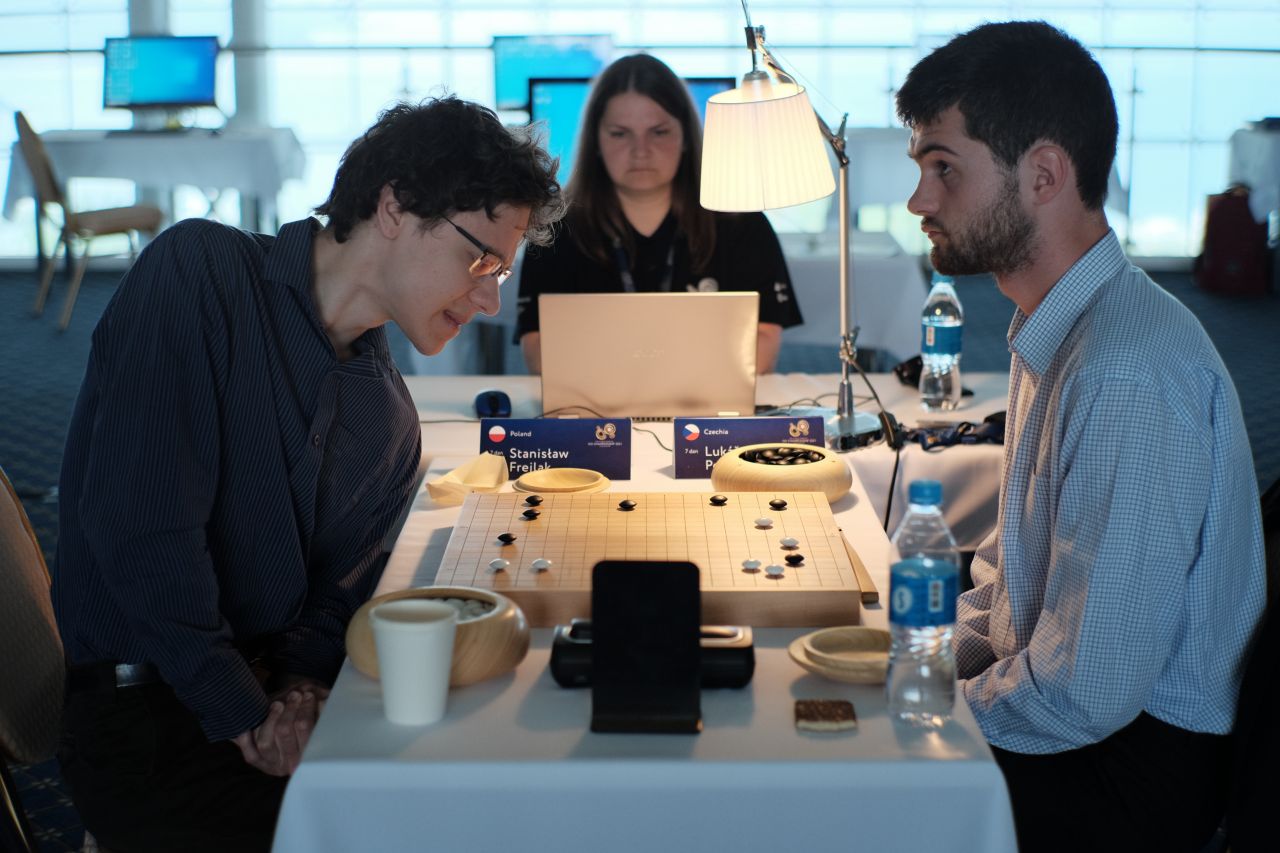
I always pay attention to the quality of food. The accommodation was fine, but it didn't offer the traditional breakfast buffet. Instead, we were offered a food stipend from the organizers to arrange meals ourselves. The quality of the local canteens on the university campus was not so high, but a lunch was organized every day when a shuttle bus would take us to one of the local restaurants, which was greatly appreciated.
The WAGC is famous for its bizarre pairing methods. I was hoping that, since a European association was organizing this huge event, the pairing would make sense for once. The organizers chose an accelerated Swiss system. Therefore, players of 4d and stronger started with a score of MM2, 2d-3d players with MM1, and 1d players and players of lower rank with MM0. I am happy that this system was used, because it proved to be a great format for a six-round tournament. The leaderboard was determined by competitors of similar rank facing off against each other throughout the tournament with the top places decided by the strongest players battling it out in the final rounds.
Interview with Stanisław Frejlak 7d
Artem: Congratulations on a great result! It’s a pity that you lost your last two games of the event, but you did defeat the Chinese representative and eventual champion Ma Tianfang. A monumental achievement for European go. How did you experience the championship?Stanisław: The championship had a different format from its previous iterations. An important difference for me was that there was only one game a day. Thanks to that, it was easier for me to have a fresh mind before each game.
My game from the second round against Wu Qiyou from Canada was very difficult. Somehow my opponent got a very good position. I don't know when it happened. At one point I thought the game was hopeless, but I carried on playing and gave it my best during endgame. My sharp moves happened to work out and I won by a small margin.
In the third round, a few unbeaten European players were facing the tournament favorites from the Far East. I was paired with Morikawa Shunji 7d from Japan. Before the game, Lukáš told me I had about a thirty percent chance of winning. I didn't believe his estimation seeing as Japan has such strong amateur players. I enjoy competing against stronger opponents though because I don't feel any pressure and can play freely. This mindset allowed me to make a risky move in the middle game which led to a good result for me.
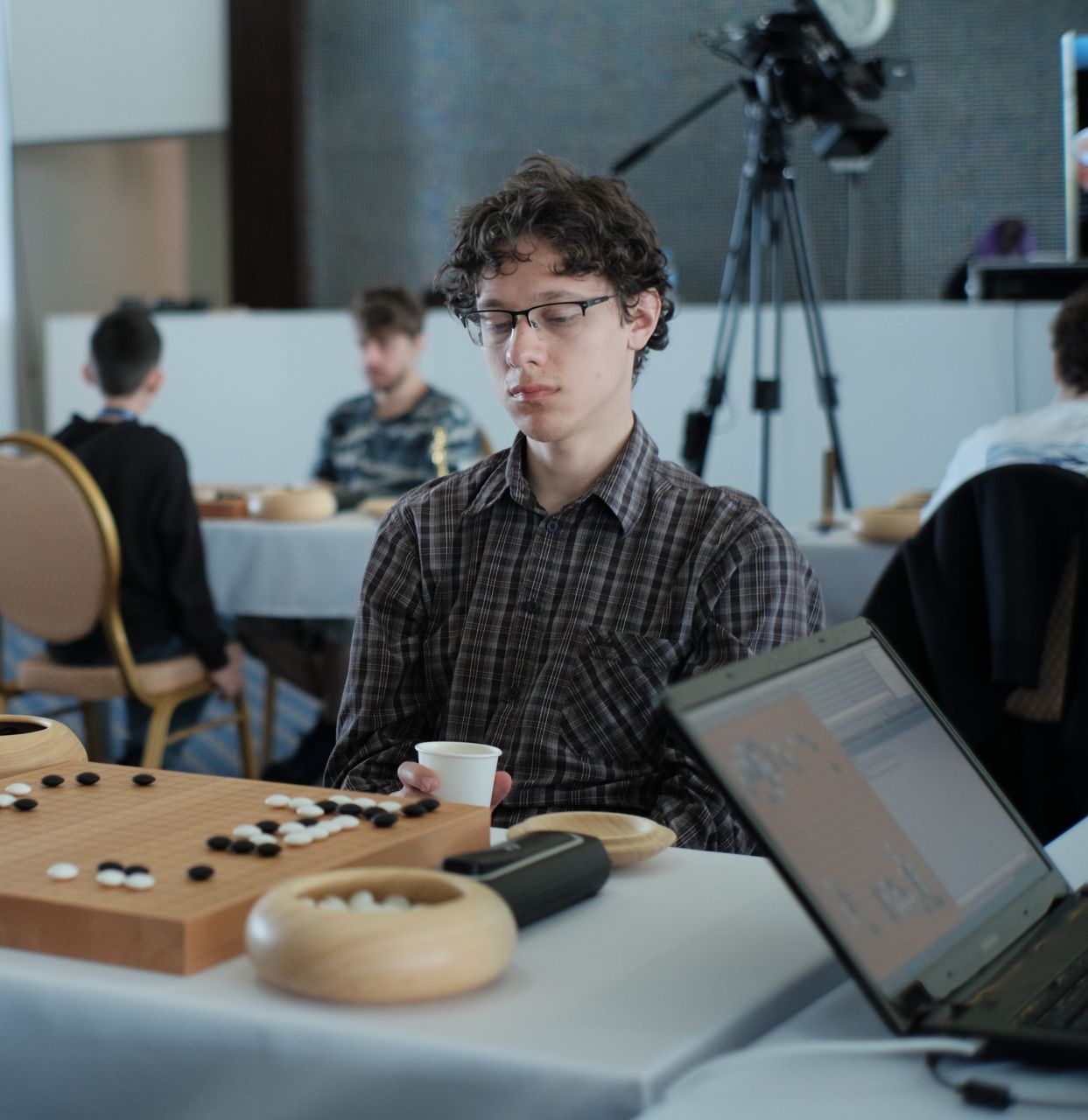
In the endgame, my opponent played a simple tesuji that I’d missed. He created a two-stage ko for the life of a big group of mine. Thankfully, I had a lot of ko threats on the board. I believe this ko battle was dangerous and that I could have lost the game because of it. In the end, it was my territory-counting that saved me. I expected that my opponent would play a ko threat against a few of my stones with his next move and I quickly counted the game result if I ignored the threat. I realized that I would have the advantage and before my last byo-yomi period finished, I played a move to finish the ko. My calculation was correct.
Afterwards, Ilya Shikshin 4p offered to review the game together. A few other players joined in and we investigated variations together. Ilya shared a lot of his ideas, showing me the game from a different perspective. I want to express my gratitude to him for this review. After returning to my hotel room, I saw that I was to be paired with a player from China in the following round.
Artem: Yes, Ma Tianfang! Tell us about that game.
Stanisław: Ma Tianfang is a famous player. I know him as one of the "Four Kings of Chinese Amateur Go". I've heard before that he plays at a professional level but doesn't want the title as he prefers being one of the strongest amateurs in the world. That's why I had no expectation to win the game going into it. And then the game took an unexpected turn...
Early in the middle game, I played a few moves of which I wasn't particularly sure. I was trying not to play in the most natural way and had no idea if the position was good for me or my opponent afterwards. With move 68, Ma played an unexpected bump. At first, I thought it was a strong move that would allow him to get a slightly better result than if he had just connected his stones with a bamboo joint. But then I saw that I could start a big ko fight and my opponent wouldn't have any good ko threats against it. After I played my ko threat, Ma Tianfang took nearly twenty minutes to think of his response while I walked around near the computer eating cakes from the buffet, drinking tea and realizing that the position was indeed very much in my favor.
After that unexpected start, I felt as if I was fighting to simply not let the advantage slip away. My opponent created several complications, but I always managed to respond calmly and refrain from panicking. When we played another ko in the late middle game I counted points and made sure that I only needed modest ko threats to keep the upper hand.

Artem: How did your last two games go? It must have been tough, knowing that you’d be the world champion if you won.
Stanisław: Well, I knew that beating two Asian representatives would have nothing to do with the results of the following games. Case and point, I lost to Alex Muromcev 5d in the Russian Cup the same day that I defeated Ma Tianfang.
In my game against Taiwan's Chan I-Tien, I feel like I managed to play without experiencing too much pressure. I played him seven years ago at the WAGC in South Korea when he became champion, so I knew his strength. The same thing happened three years ago in Japan. This time, I think I succeeded in staying in the game longer than our two previous encounters, but he slowly dominated me on the board.
The last round was different. I played Lukáš, who is a difficult opponent for me. I knew that the game was very important and that if I won, I would most likely finish second or third. But, how to play against Lukáš? It didn't go well for me this time. In the opening I played a sequence I believed would yield me a good result, but it ended poorly. I was behind the whole game. With each move the only thing I managed to achieve was realizing that the position on the board was favorable for my opponent.
Artem: How was the atmosphere of the WAGC in general? What were your impressions?
Stanisław: The event was very well organized and held in a beautiful place - a calm student campus with lots of space and an amazing view of the Japanese Sea.
My personal impressions are another story. I had participated in the WAGC three times prior, but this year was a completely different experience for me. Besides the World Championship, there was also the Russian Go Congress in tandem. I was able to spend time with my Russian friends taking walks, playing cards, swimming in the sea. I had a really good time.

I would have to say that, for me, the WAGC was not the main event. I tried not to take it too seriously. For example, I didn't try to adjust to the new time zone. I just made sure to sleep a bit before each game. In general, I felt free and cheerful about the championship and I also felt the support of my friends. My results happened to be good. I think no conclusions are to be drawn from it.
It just so happens that one wins a game or loses it. Sometimes such a game is the final of a title match and other times it is simply an exhibition game. Maybe there is a way to prepare one's self in order to be in the right shape for a game. There are probably even more ways to prepare poorly. But I have no idea which is which.
I was very sad after losing my game to Lukáš, but after some time I came to terms with it and realized that my overall result was not bad. Lukáš showed a solid performance and barely didn’t make the podium because of SOS points. In our game he gave me zero chances. I managed to beat two players from the Far East and Benjamin Dréan-Guénaïzia beat one. The European players did a great job. As to my loss against Lukáš, I am probably the greatest beneficiary. I realized that I am far from where I want to be.
For the moment, I have no reason to be too satisfied with myself. After losing important games, I feel the need, the call, to be more serious and to put more effort into studying go. I want to be stronger.





